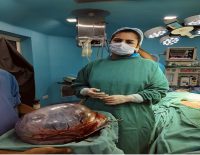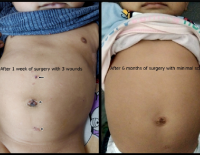Gear up health infra preparation for Heat wave: Centre writes to states, UTs

In view of temperatures soaring across the country, the Centre has asked states to review the preparedness of health facilities for the management of heatstroke cases and heat-related illnesses.
In a letter to all states and UTs, health secretary Punya Salila Srivastava said with the onset of summer, an increase in the exposure to heat, including extreme conditions may occur.
Highlighting the public health and clinical guidelines on ‘Heat and Health’ available on the website of the National Centre for Disease Control (NCDC), she requested states to disseminate these guidance documents to all districts for effective preparedness of health departments and health facilities to prevent, manage, and monitor the health impact of extreme heat.
Ms Srivastava mentioned that from March 1 onwards, through daily surveillance, patient-level information on clinical diagnosis of heatstroke is being captured on Integrated Health Information Platform (IHIP) for all states and UTs. Training sessions in virtual mode have been conducted recently by the National Programme on Climate Change and Human Health, NCDC, she said.
“State, district, and city health departments may ensure the implementation of Heat-Health action plans and support in planning, managing and assessing response to heat along with other responding agencies,” Ms Srivastava stated.
She also urged the health departments of states and UTs to continue efforts for sensitisation and capacity building of medical officers, health staff, and grass-root level workers on heat illness, early recognition and management.
“Health facility preparedness must be reviewed for the availability of adequate quantities of essential medicines, intravenous fluids, ice packs, ORS and all necessary equipments to provide active, emergency cooling,” she underlined in the letter.
Ms Srivastava said the guidance on developing heatstroke management units and emergency management of severe heat-related illnesses has been disseminated. Availability of sufficient drinking water at all health facilities and the continued functioning of cooling appliances in critical areas must be ensured, she stressed.
She emphasised that the health facilities need to increase their resilience to heat by arranging uninterrupted electricity for the constant functioning of cooling appliances, installation of solar panels (wherever feasible), energy conservation measures and measures to reduce indoor heat through cool/green roofs.







